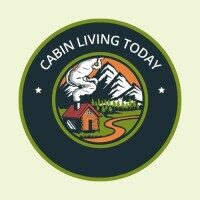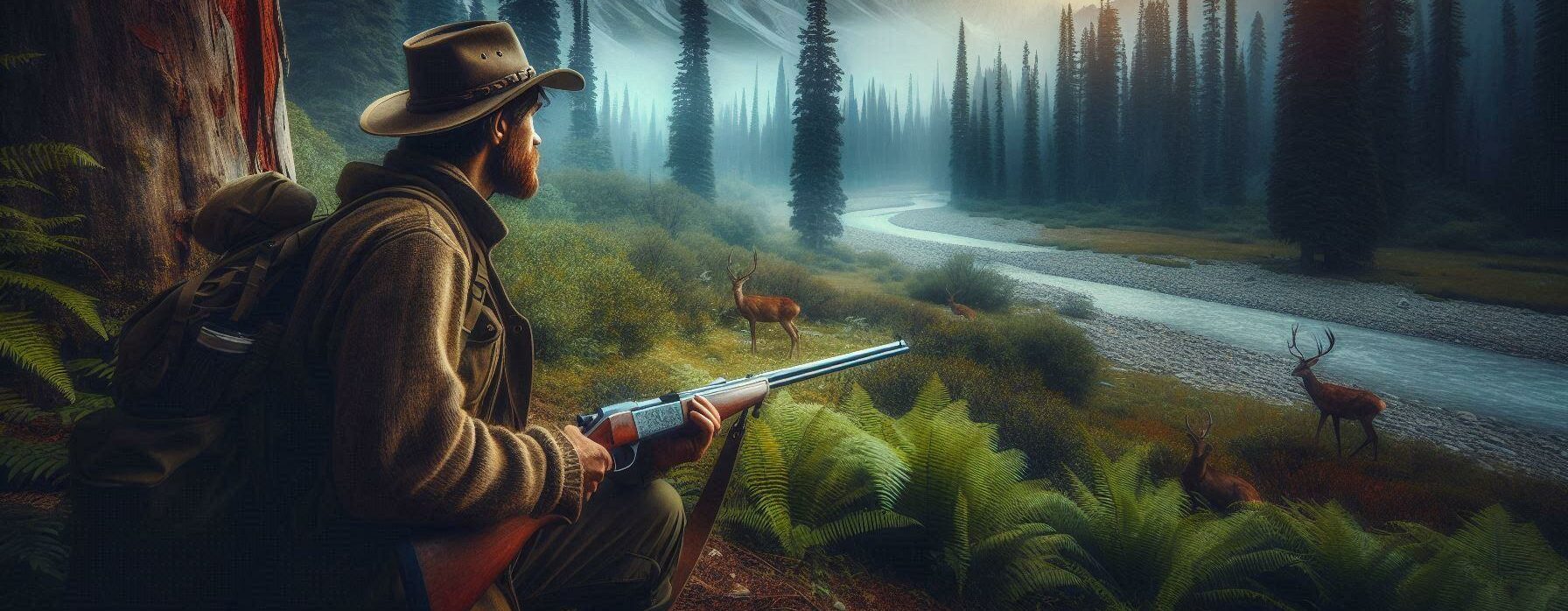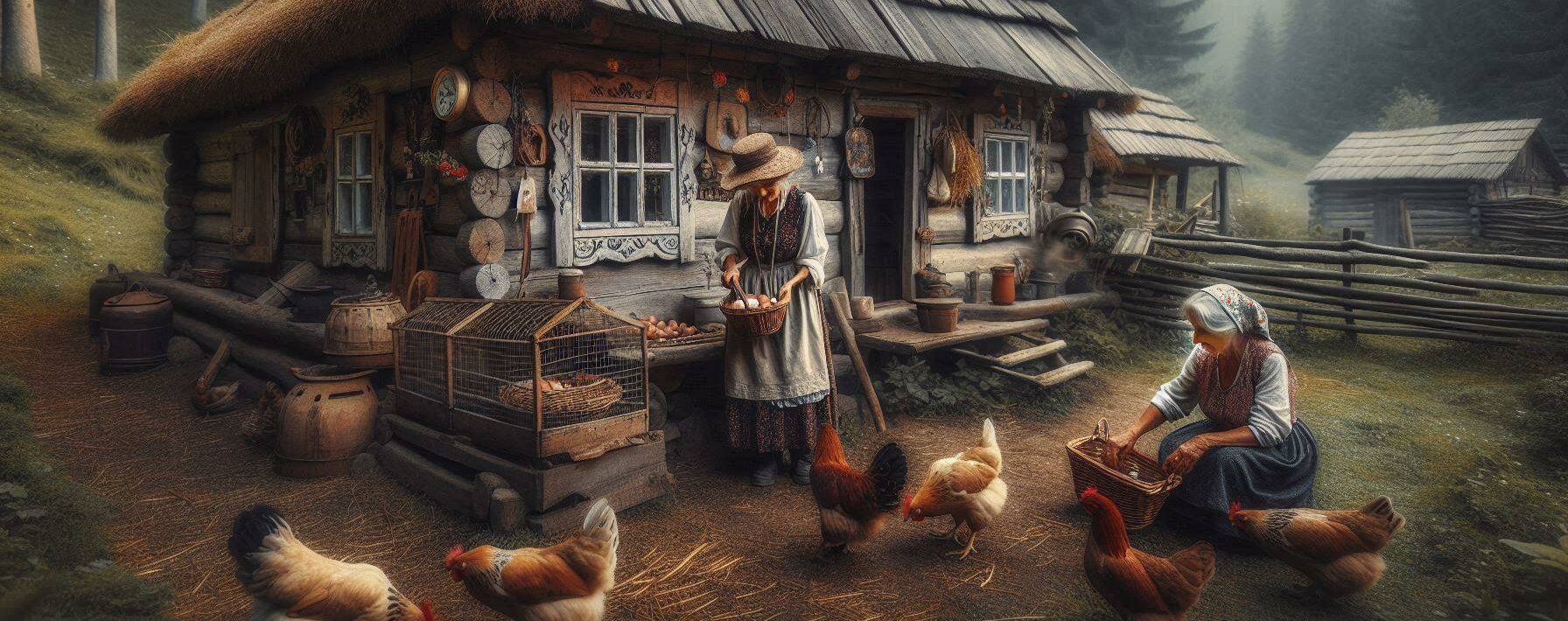(Even though I am not a hunter, if you decide to live off the grid and like meat, learning to hunt will be essential for your survival. This article, and ones to follow regarding hunting, will give you some insight on what it takes to make hunting an essential part of your life).
Hunting isn’t just about tracking animals. It’s a skill that connects you deeper with nature, and when living off the grid, it’s more of a necessity than a pastime. You need to know where your food comes from and how to secure it sustainably. But before grabbing a bow or a rifle, there are crucial fundamentals to tackle first.
Understanding why hunting is such a vital skill comes down to survival. Living away from grocery stores means embracing self-reliance. Hunting lets you tap into local resources and ensures you have a fresh, healthy food source that didn’t travel miles to get to you.
When it comes to the ethical and ecological aspects, it’s about respecting wildlife and their habitats. Overhunting can disturb local ecosystems, so it’s key to hunt responsibly. You’re looking to sustain your life, not upset the balance of the wild.
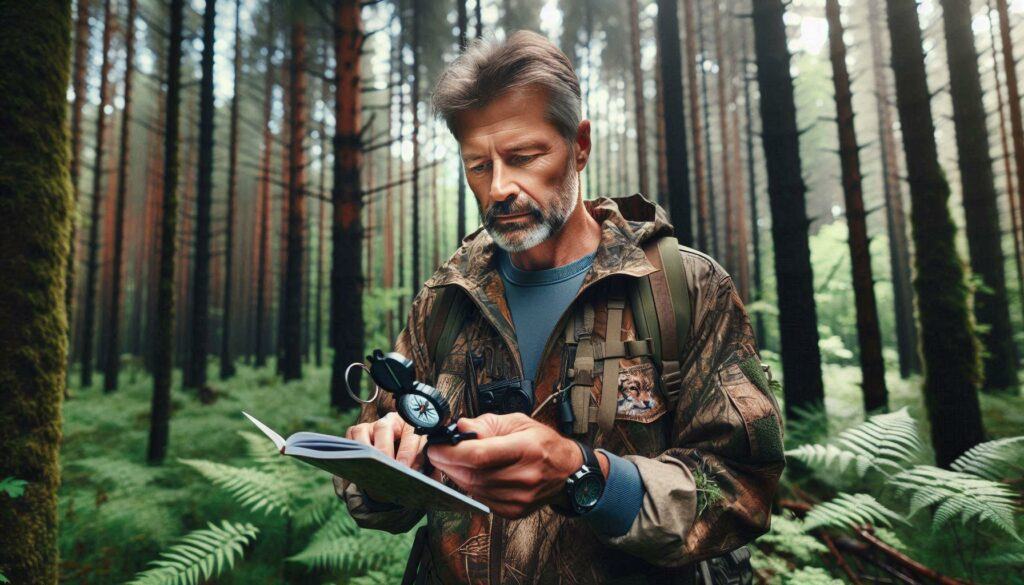
Knowledge is power, mainly when it keeps you on the right side of the law. Familiarize yourself with local regulations and ensure you’re licensed before heading out. Learn about hunting seasons and protected species. After all, being informed helps you hunt without legal tangles.
Finally, choosing the right tools is crucial for a seamless hunting experience. Whether you’re a fan of traditional bows or modern rifles, each tool has its pros and cons. Plus, don’t forget other essential gear like camouflage clothing, binoculars, and a sturdy hunting knife.
Identifying Ideal Game and Their Habitats
Picking the right game is key when you’re off-grid, trying to make the most of your surroundings. Not all animals are ideal for hunting, whether it’s their scarcity or the challenge they pose. Go for common species like deer, rabbits, and wild birds. These are often abundant and provide substantial nutritional value.
Understanding where these animals hang out is another big piece of the puzzle. Game tends to favor habitats that offer food, water, and shelter. As seasons change, so does their behavior. For instance, some animals migrate during colder months seeking warmer areas. Knowing these patterns makes tracking them down a whole lot easier.
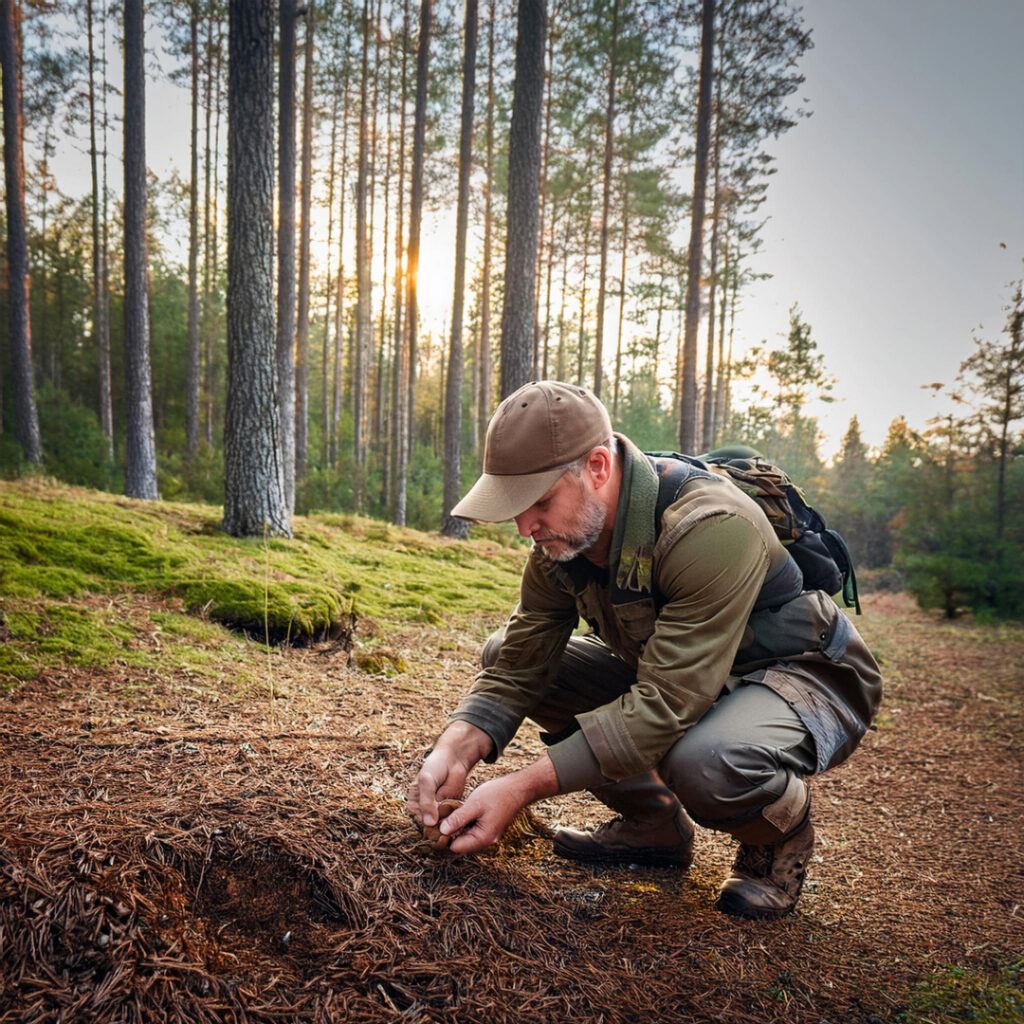
Tracking techniques are a game-changer. Learn to spot signs like footprints, scat, and disturbed vegetation to know where animals have been. Observing these details can tell you about their daily routines, helping to predict where they might be next.
Assessing game health is crucial for sustainable hunting. First, check for physical signs of disease. Not only does this protect your health, but it’s about maintaining the wildlife’s overall well-being. Evaluating if the population can sustain hunting is also essential to keep the balance in nature.
Mastering Hunting Techniques and Strategies
Getting the hang of tracking and moving stealthily in the wild takes practice. Animals have sharp senses, so being quiet and unseen is your best bet for success. Wearing the right gear helps, but learning to walk softly and blend in with your surroundings ups your game significantly.
Choosing a hunting method can depend on what you’re after and your personal preference. Bow hunting is often quieter and more challenging, testing your skill to get up close. Firearms are precise and efficient, but they come with the risk of noise, which can alert other animals in the area.
Safety should always be a top priority, not just for yourself but for the animals and people around you. Knowing how to handle your weapon correctly reduces accidents. Incorporate safety checks like ensuring your firearm’s safety catch is engaged when not in use and always being aware of your surroundings.
Patience is the hunter’s best friend. It’s not about immediate results but waiting for the right moment. You’ll often have to adapt to changing weather or unexpected scenarios. Sticking with it pays off in rich rewards as you become more in tune with nature and its rhythms.
Post-Hunt Essentials: Processing and Preservation
Wrapping up a hunt isn’t just about bagging game. The real skills show when you’re processing and preserving your catch, making sure nothing goes to waste. Ethical harvesting isn’t just a fancy term. It’s about respecting the animal and ensuring you use as much of it as possible.
Cleaning and processing game meat is where precision meets care. Start with the basics: a clean workspace, sharp tools, and following proper guidelines for field dressing your game. The fresher you do this, the better the quality of the meat you preserve.
Once processed, preserving the meat is critical, especially when living off the grid. Traditional methods like drying and smoking not only enhance flavor but extend the meat’s shelf life. If you’ve got access to freezing, it’s a reliable way to store meat for future use.
Understanding the nutritional perks of wild game gives you a new appreciation for your hard work. Wild meat is often leaner and richer in nutrients. Try simple cooking ideas to savor the natural flavors. Grilling, roasting, or even stewing can turn your hunt into a delicious meal.

